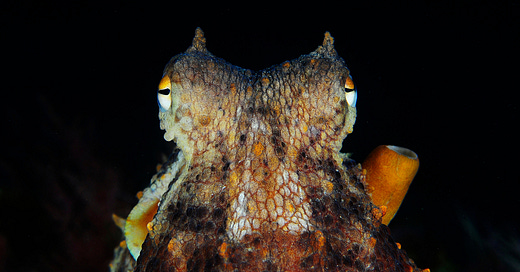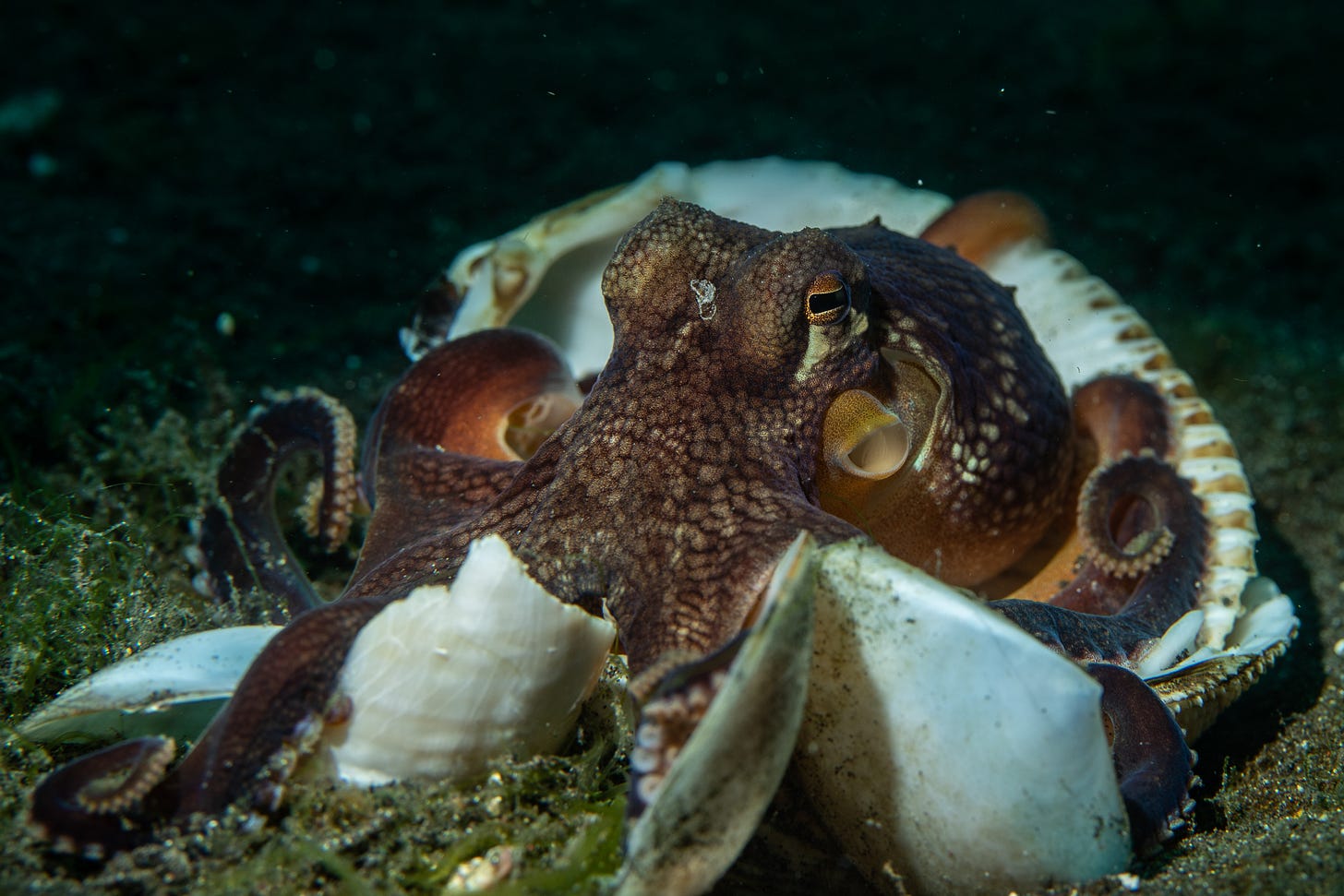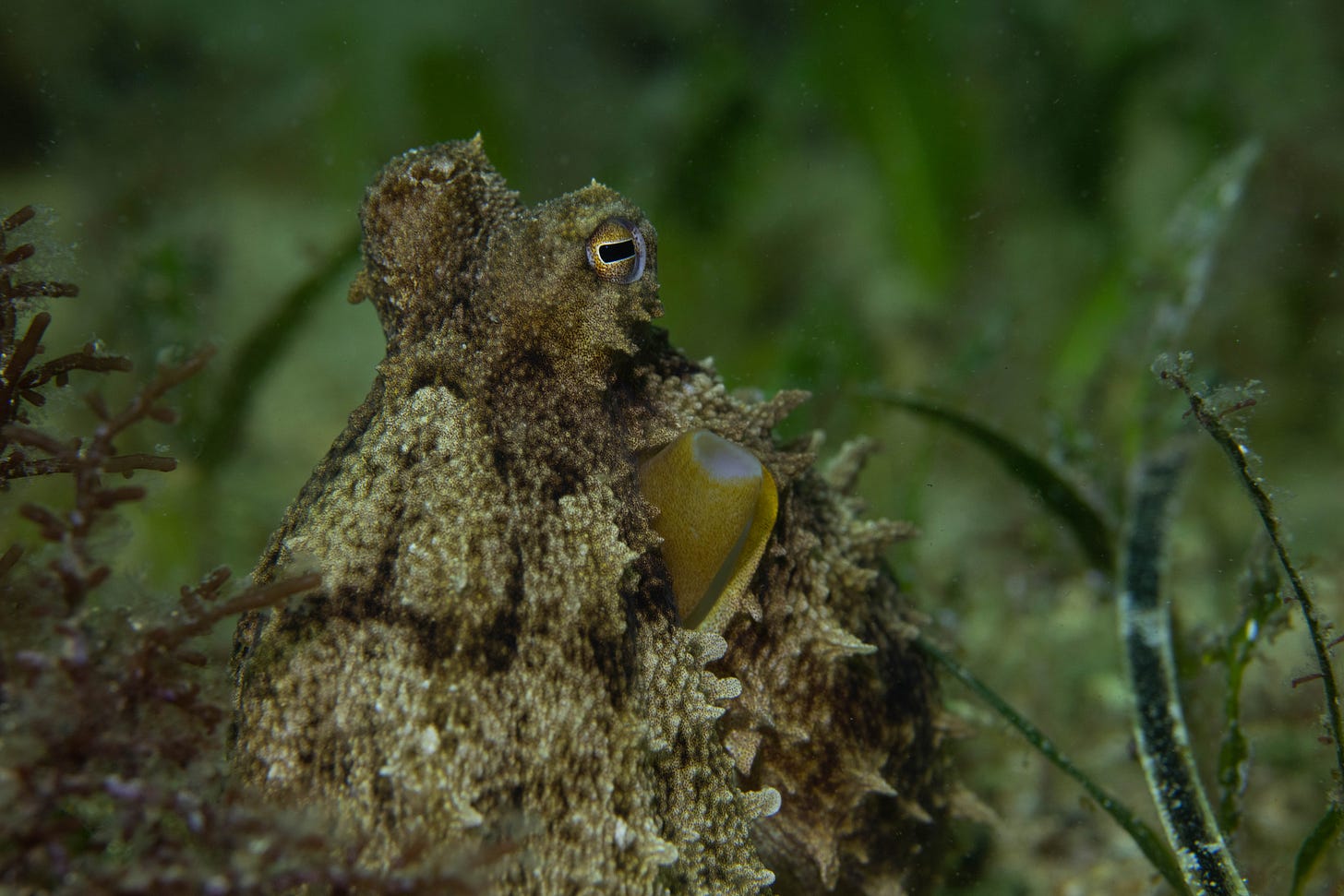Octopuses are among the most intelligent animals on the planet. Perhaps this isn’t surprising when you consider the fact they have nine brains and a larger brain-to-body ratio than any other invertebrate species — with about as many neurons as a dog. They use their smarts in a variety of ways. Octopuses are adept predators, with some making use of tools, like rocks to break open shells, or the tentacles of the extremely deadly Portuguese man o’war as a weapon. They are also highly skilled escape artists, breaking free from their enclosures and some making it all the way back to the wild. What’s more, octopuses have shown an ability to recognise individual human faces. One even correctly predicted the winner of every game at the 2010 football World Cup.
So this makes the news that Spain is in the process of trying to establish the world’s first octopus farm all the more depressing.
The farm, due to be located in the Canary Islands, plans to raise about a million octopuses per year for human consumption. Although the animal has been eaten by humans for thousands of years, they have never been intensively farmed before. Traditionally octopuses have been caught in the wild using pots, traps, and lines and are eaten all over the world. But this marks the first time plans have been set in place to breed them artificially on mass – as octopus larvae only eat live food and need a very carefully controlled environment to survive to adulthood. Given their popularity as a delicacy, the race to discover the secret to breeding the eight-legged creatures in captivity has been going on for decades. But in 2019 the company Nueva Pescanova — a multinational seafood company — announced they’d made a scientific breakthrough.
Naturally, the plans have created a backlash. Octopuses’ high intelligence has led scientists to label the idea of breeding a million octopuses in close proximity, raising them in questionable conditions, then slaughtering them with icy water, ‘cruel’. (Footnote: The icy water slaughtering method involves submerging the octopus in 500 litres of water with ice at temperatures of -3/0°C, resulting in a slow, painful, and stressful death.) Meanwhile animal rights NGOs, like Compassion in World Farming (CIWF), Eurogroup for Animals, and AnimaNaturalis have quite rightly pointed out the practice would violate Nueva Pescanova’s own corporate sustainability commitments. For not only would this farm inflict great harm and cruelty upon hundreds of thousands of intelligent creatures, but the fish required to feed the livestock would deplete fish stocks, and endanger dolphin and sea turtle populations near the site. And that’s before we even mention the huge amount of pollution that would seep into the local environment from such a farm.
Sadly, this isn’t just the usual story of corporate greed. Governments are directly involved too. Recent research by CIWF has uncovered a disturbing trend: governments worldwide have been investing millions into developing octopus farming. Spain leads the way, having spent a whopping €9.7 million, with a significant portion of this coming from the EU. Other countries, including Chile, Mexico, New Zealand, and Australia have also spent millions on research.
The true extent of this funding remains unclear due to limited transparency in public spending. What is clear, however, is the harsh and unsuitable conditions of factory farms which would inflict unspeakable pain on the naturally solitary and highly intelligent octopus. Confined conditions can lead to severe stress, and even cannibalism.
CIWF polled nine EU countries and found that nearly 80% of people believe public funds for aquatic animal farming should only support sustainable farming. Beached is pleased to see that both the Washington and California State Senate have in the last few months voted to ban octopus farming in both land and water. I hope other governments around the world follow their example, and stop this practice before it can begin.
Octopus are a beautiful, curious, and highly intelligent animal; we do not need to be farming them.
Here at Beached we are building a community that can put our brains and resources together to highlight and fund solutions to the problems facing octopuses and the oceans they live in. I hope you’ll join our humble community and click subscribe for free or support our work by purchasing the paid subscription.
All Beached posts are free to read but if you can we ask you to support our work through a paid subscription. These directly support the work of Beached and allow us to engage in more conversations with experts in the field of marine conservation and spend more time researching a wider breadth of topics for the newsletters. Paid subscriptions allow us to dedicate more time and effort to creating a community and provide the space for stakeholders to come together, stay abreast of each other’s work and foster improved collaboration and coordination.
One day Beached hope to donate a large percentage of the revenue from paid subscriptions to marine conservation organisations and charities to support their work too. Working together, we can reverse the degradation of our oceans.
Amie 🐋








Not a space I normally set foot in but I snivelled watching ‘My Teacher the Octopus ‘ so this news really pisses me off.
I'm speechless. The mere concept of octopus farming is unfathomable. Every documentary I watch about octopuses makes them even more astonishing to me.